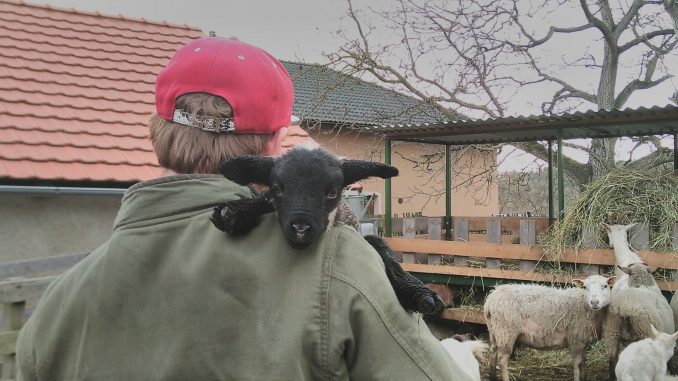
Meet Josef, a Czech livestock farmer who is a conscientious objector to the meat industry. For ethical reasons he slaughters his animals on farm and sells the meat locally to friends and neighbours. On-farm slaughter is not legally possible for small farmers in the Czech Republic, where the only ways to kill a cow are via big processors, investing in your own on-farm facility – which is prohibitively expensive – or live exports.
Josef grazes his Salers cattle, sheep and goats on around 80 ha in Central Bohemia. This includes some of his neighbours’ land, and around 20 ha of a nearby nature reserve where he rotational grazes his sheep and goats. He inherited the farm from his grandparents. His grandfather lost the farm when it was confiscated under the Communist regime, and died shortly after it was returned to him in the 1990s. Josef grew up in the city, but five years ago he quit his desk job to get the family farm going again.
In order to speak freely about his activities, Josef (not his real name) chose to remain anonymous for this conversation with Louise Kelleher.
I want to do everything in an ethical way. No, not ethical – to give the animals a natural lifestyle. They need pasture, they need to be outside, to see the sky – like me. I know it’s not the best or easiest way to earn money. But it’s the easiest way to be sure of what you’re doing.
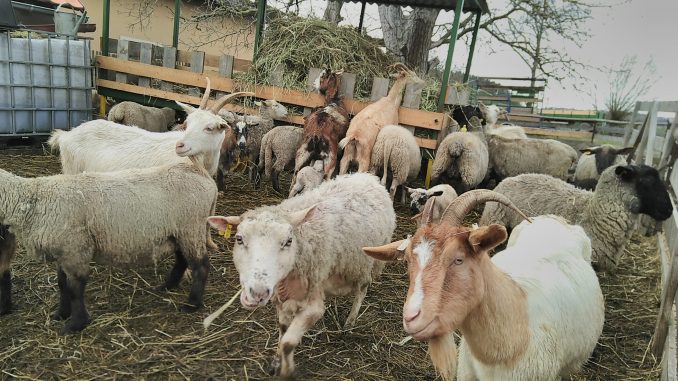
Bye bye, you will go to Turkey today
To sell your cows for meat, legally you must use a meat processor. There are not many processors. They have the monopoly to supply all the markets, all the meat shops and so on. And it’s really difficult to take the cow to the meat processor and take back the meat.
The processors are buying the meat for 80 koruna (€3.15) per kilo and in shops you cannot get quality beef for less than 250 koruna (€10) per kilo. So 150 koruna (almost €6) is going somewhere and not into the farmer’s hand. It’s impossible to stay alive economically.
10% of my money I get from the meat, and 90% from subsidies. It’s not possible to do it just for meat. It would be happy days if I could do it for the price of the meat.
I used to use a small processor that was OK but they closed down because of bureaucracy; they were too small to stay alive in this system.
The other possibility I have is to sell the cow to another country where they can pay more. That’s interesting but for me not ethical. I bred those animals and I care about them and after two years I should say to them, “Bye bye, you will go to Turkey today”? In the trailer of a truck, on the highway? I cannot do this to them. They are my responsibility and I cannot do this.
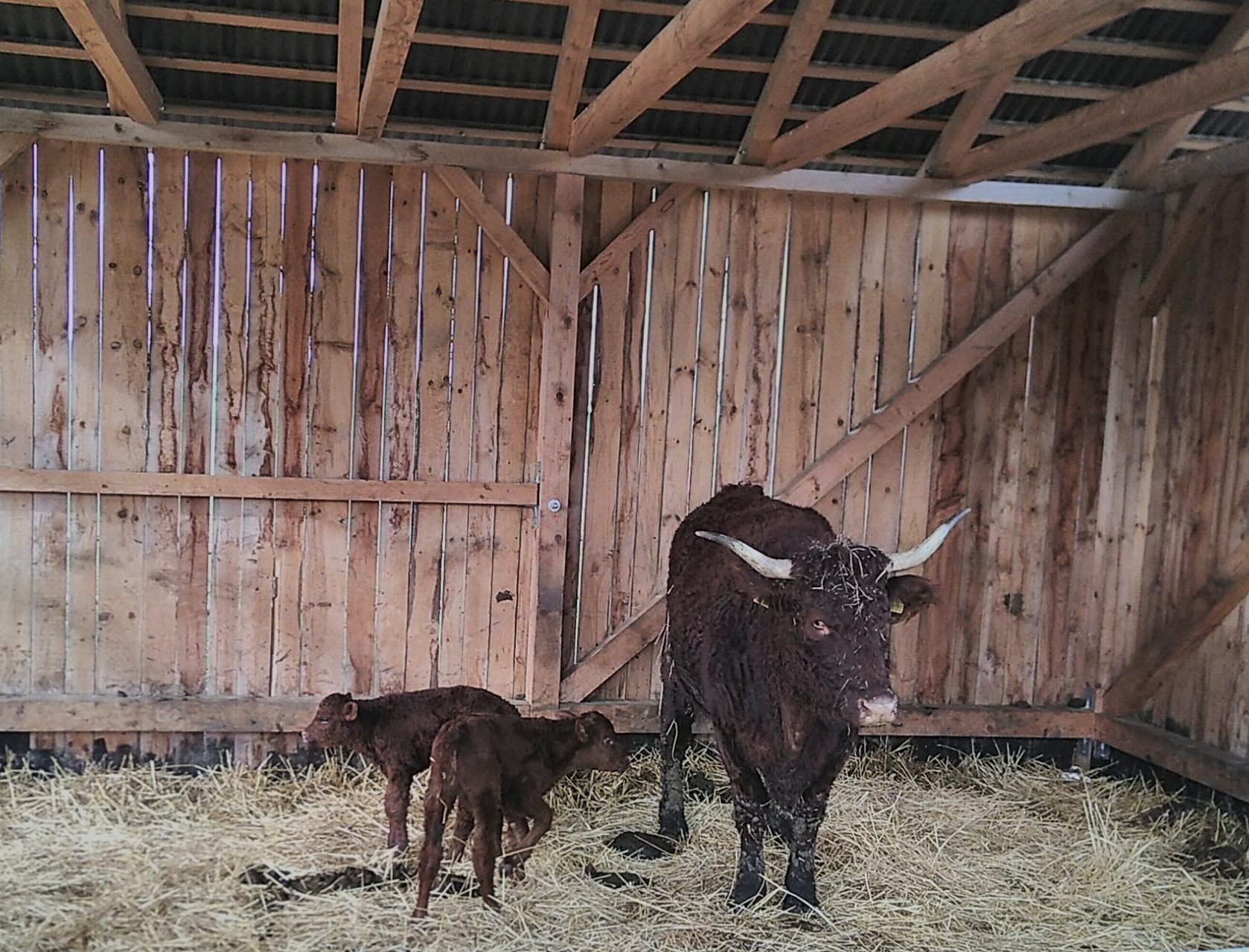
Kafka’s vets
The only way is to do it another way, but it’s not legal in the Czech Republic. In Germany or Austria you can have the slaughterhouse on the truck and they come to your pasture or field and kill the animal there. The Czech Farmers’ Association wants to do this. But the Czech veterinary office says they don’t have enough officers to check the quality.
So the reason we don’t do it more ethically and we hurt the animals with travel to the slaughterhouse and waiting in the queue in the slaughterhouse is because we don’t have enough officers in the veterinary office. It’s absolutely crazy. And I think you can break the law if you don’t feel comfortable or ethical doing things the way the law tells you to.
I’m breaking the law in two ways. First, I cannot do on-farm slaughter in the Czech system. And second, I don’t pay taxes from it. Because I cannot. But I want to pay. The system is broken. All the people, the veterinary office, they tell you this is the big lobby of slaughterhouses. It’s crazy because you breed the cow, you care for her for two years, and then you can kill her but just for your own household, not to sell.
My customers are my certifying body
When you had a pig or a duck during the war it could be confiscated and given to the army, and you would be arrested. And now it’s partly a joke but it’s not really a joke.
A lot of officials are saying you cannot do this, you cannot do that. They care about the customers – I understand that. But they are really paternalistic. They don’t give them responsibility to eat what they want.
The customer is the person who makes the decision: I will eat this. If the customer knew everything about the meat, if the customer had all the information – possibly from garbage, it’s not clean – they wouldn’t eat all the food processed in Czech Republic.
We are in the organic farming programme. But I don’t want to be in it in the future. I know all my customers. They are my certifying body. Now I get some money thanks to this programme. But I don’t think it’s the right way for the future because you must do more paperwork, more official processes, more inspections.
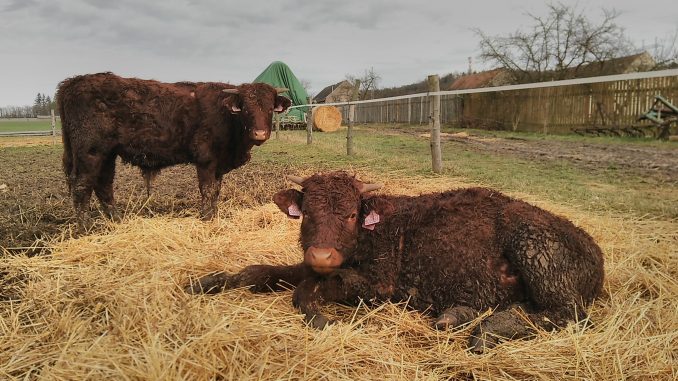
Not having all your eggs in one basket
I’m trying to mix our income. This year we want to start with poultry for eggs. Because Czech eggs are produced in a really bad way. Maybe that will change soon.
It’s the same: I want to see the animals in natural conditions, feeding on grass, seeing the sky, not in sheds, in jails. I need to try if this is possible. Maybe it’s not.
With selling eggs it’s not as hard as with meat. You can store them for three weeks. And you can sell them to the local shop – I don’t know, 500 eggs a month. If you buy my eggs in the shop and something is wrong, everyone knows where the problem is. You cannot sell them to a third party, like restaurants. Because if you are eating them in the restaurant and there is a problem, you don’t know.
I don’t see any difference between selling eggs and selling meat. You can use vacuum packing and a clean kitchen. Why do people look for problems with that? You could set a limit like selling five or ten cows per year and nothing more. Five cows is for 100 people with families. So all the people they know you, they know your farm.
The whole system is a lie
The worst thing about it is the lie. The system of lies. Everyone knows how it is. Because we have the system for counting your cows and the veterinary officers can see that the cows were killed in your yard. They know you can’t eat 10 cows. But they don’t want to deal with it. They don’t want to change anything. They know what you’re doing but say nothing. And you know what you’re doing but say nothing. The problem is, it’s not the truth. It’s always the road to hell, to live in a lie. And this is a lie. The whole system is a lie.
In conversation with Louise Kelleher.
Update: Since we spoke to Josef the small local meat processor has re-opened.
The slaughterhouse I spoke about has opened again. It’s still 30 minutes away, but there’s no queues and I trust them that I’ll get back the meat I brought. I should have mentioned that in the big slaughterhouses, you send the animal in the door and the next time you see it it’s meat and you just have to trust them – which I don’t.
More from the Czech Republic
Trouble With The Neighbours: Living Next Door to an Agri-Giant
Czech Republic | “No Forests, No Water, No Future” – Part I: Bugs in the Ecosystem
Czech Republic | “No Forests, No Water, No Future” – Part II: Moving On from Monocultures



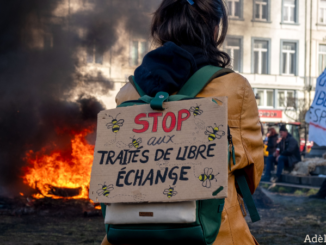
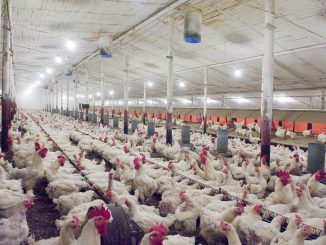
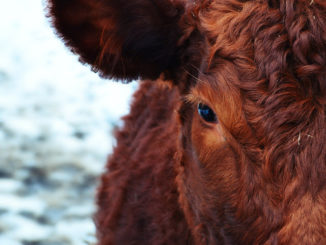
2 Trackbacks / Pingbacks
Comments are closed.